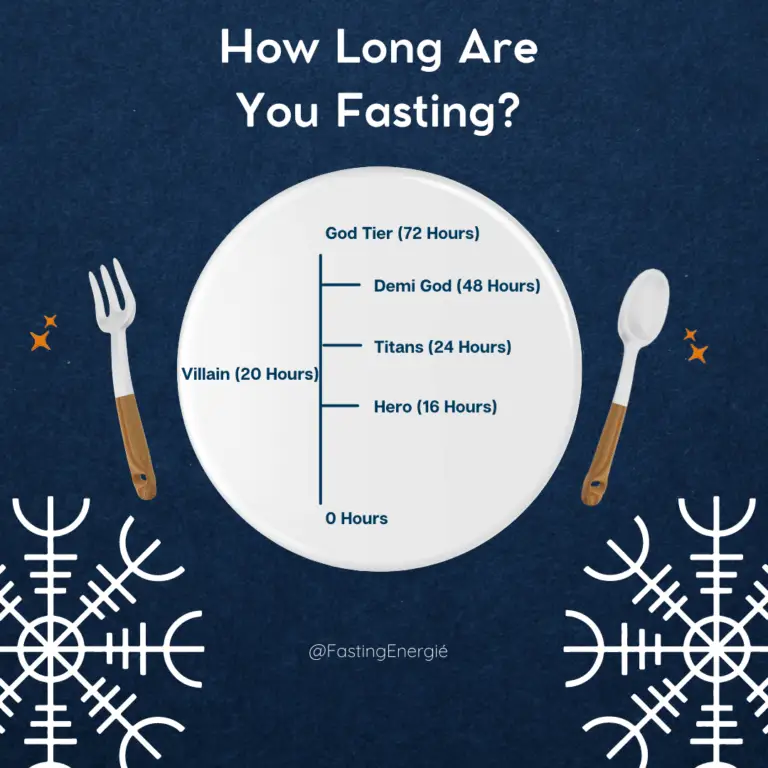10 Benefits of Fasting: Autophagy, Anti-Aging, Brain Function, and More!
Welcome to our most recent blog post, “10 Benefits of Fasting: Autophagy, Anti-Aging, Brain Function, and More!” In this instructive essay, we will look at the transformational impacts of fasting, a practice that has been part of human civilization for millennia but is just now becoming widely recognised for its numerous health advantages.
Whether you’re new to the notion of fasting or want to improve your understanding, this piece will walk you through ten compelling reasons why adopting fasting into your lifestyle could be transformative. From aiding cellular repair via autophagy to improving brain function and encouraging lifespan, we look at how fasting is more than just abstaining from food—it’s a road to a happier, more vibrant life. Join us as we dissect the research behind each benefit, providing insights that can help you make better decisions about your health and well-being.
Table of Contents

Benefits of Fasting : A Comprehensive Look at Many of its Benefits
Autophagy & Cell Regeneration
Explaining How Fasting Promotes Cellular Cleanup and Renewal
Autophagy is a mechanism that cells use to remove damaged or defective proteins and organelles and replace them with newer, healthier components. This mechanism is critical to cellular health and longevity. Fasting is one of the triggers that might promote autophagy because, during times of energy deprivation (such as fasting), cells must recycle and utilise existing cellular components in order to create energy and synthesise new ones. This natural recycling mechanism aids in the removal of potentially harmful protein aggregates and defective organelles, lowering the strain on cellular machinery and improving overall cell health. Enhanced autophagy has been related to greater cellular function, a lower risk of disease, and better ageing outcomes.
Boosting the Immune System
How Fasting Strengthens Immune Function and Resistance to Disease
Fasting can have a substantial impact on the immune system by lowering inflammatory indicators and triggering immune cell cleaning, also known as “immune cell rejuvenation.” When you fast, the drop in calorie intake can cause a decrease in white blood cell counts, which may appear alarming but is really advantageous. This decline causes the immune system to begin regenerating new immune cells, particularly when you resume eating after a fast. This rejuvenation can improve the body’s ability to combat infections and disease more effectively. Fasting has also been demonstrated to lower pro-inflammatory cytokines, which play a role in inflammation and chronic disease processes. This immune response modification helps to defend against numerous diseases and improves overall immune function.
Anti-Ageing Benefits
The Role of Fasting in Slowing Down the Ageing Process
Fasting affects multiple pathways thought to increase longevity and improve health as we age. Fasting can reduce ageing by reducing oxidative stress and increasing cellular tolerance to stress. Fasting causes lower metabolic activity, which minimises the generation of free radicals, which are unstable chemicals that can cause oxidative damage to cells and tissues. This reduction in oxidative stress is beneficial since oxidative damage contributes significantly to ageing and age-related illnesses.
Furthermore, fasting increases the body’s ability to handle stress at the cellular level by increasing mitochondrial efficiency and protein creation that protects cells from stress. These adjustments not only serve to delay the onset of age-related disorders, but they can also increase life expectancy. Fasting has been demonstrated in studies to activate sirtuins, a protein family associated with lifespan and slowing the ageing process. These proteins perform important roles in cellular health, such as DNA repair and metabolic control, both of which are necessary for healthy ageing.
Improving Insulin Sensitivity
How Fasting Helps Regulate Blood Sugar and Reduces Risk of Diabetes
Fasting has been proven to greatly boost insulin sensitivity, or cells’ ability to respond to insulin. When insulin sensitivity is high, cells can better absorb glucose from the bloodstream, resulting in lower blood sugar levels. The pancreas secretes less insulin during fasting times due to the reduced calorie intake. This lessened pressure on the pancreas gradually restores insulin sensitivity, which can deteriorate with frequent feeding and large sugar loads.
Furthermore, intermittent fasting reduces both body weight and fat mass, which improves insulin sensitivity since excess fat, particularly visceral fat, is strongly connected to insulin resistance. Several studies have demonstrated that intermittent fasting can lower fasting blood glucose levels while increasing fasting insulin levels, making it a potentially effective technique for lowering the risk of type 2 diabetes.
Reducing Inflammation
The Impact of Fasting on Inflammatory Conditions and Overall Health
Inflammation is a normal immune reaction, but when it becomes chronic, it can cause a variety of health issues, including heart disease, cancer, and autoimmune disorders. Fasting has been linked to reduced inflammation and improved chronic inflammatory disorders. Fasting works by lowering the amounts of pro-inflammatory cytokines, which are signalling proteins that cause inflammation.
Furthermore, fasting can trigger cellular processes such as autophagy, which helps eliminate damaged cells that lead to inflammation. Fasting has been shown to lower systemic inflammation indicators like CRP, IL-6, and TNF-α. These benefits can help reduce the symptoms of inflammatory disorders such as rheumatoid arthritis while also improving overall health and longevity.
Improving Cardiovascular Health
Fasting’s Effects on Heart Health and Cholesterol Levels
Fasting improves many areas of cardiovascular health. It helps reduce significant risk factors for heart disease, including as blood lipid profiles, by lowering total cholesterol, LDL cholesterol (the “bad” cholesterol), and triglycerides. Fasting also lowers blood pressure and arterial stiffness, two major risk factors for heart disease and stroke.
Fasting’s heart health benefits are also linked to its potential to enhance body composition and reduce inflammatory markers, which are both known to contribute to cardiovascular disease. Fasting can also raise levels of human growth hormone (HGH), which promotes metabolic processes and fat metabolism, resulting in a healthy body weight and muscle mass ratio, which is good for heart health.
Improving Brain Function
The Cognitive Benefits of Fasting: Neuroprotection and Mental Clarity
Fasting has been demonstrated to provide a number of cognitive health benefits, including improved memory, focus, and mental clarity. One of the primary processes underlying these advantages is the activation of neurotrophic factors, such as brain-derived neurotrophic factor (BDNF), during fasting. BDNF promotes neuronal survival and growth while also improving synaptic plasticity, which is essential for learning and memory.
Fasting also generates a metabolic state known as ketosis, in which the body employs ketone bodies—a more efficient fuel source than glucose—to generate energy. Ketone bodies have neuroprotective qualities, which help protect brain cells from oxidative stress and neurodegeneration. Fasting reduces inflammation and oxidative stress, which helps to improve brain function and prevent neurological illnesses like Alzheimer’s and Parkinson’s.
Promoting Weight Loss.
How Fasting Affects Effective and Sustainable Weight Management
Fasting is an effective weight loss strategy because it produces a window in which calorie intake is drastically decreased or eliminated, resulting in a natural calorie deficit. This helps you lose weight over time. Furthermore, fasting enhances hormone function associated with weight management. For example, it raises levels of norepinephrine, a neurotransmitter that promotes fat breakdown for energy.
The periodic nature of fasting aids with metabolic flexibility, which is the body’s ability to switch between burning carbohydrates and fats for energy. This not only reduces body fat but also retains muscle mass, making weight loss more sustainable. Furthermore, fasting often causes a decrease in the hormone ghrelin, sometimes known as the hunger hormone, which reduces appetite and makes it simpler to maintain a lower calorie intake when not fasting.
Gut Health Improvement
The Benefits of Fasting for Digestive Health and Microbiome Balance
Fasting can considerably enhance gut health by relieving the digestive system from the constant task of digesting meals. This rest interval helps to rebuild the gut lining, reducing permeability (also known as “leaky gut”) and lowering the overall burden on the gastrointestinal system. Fasting can also alter the composition of the gut microbiome, boosting the growth of beneficial bacteria while decreasing the prevalence of harmful bacteria.
Fasting alters the gut flora, which contributes to improved immune function and lower inflammation in the gut, both of which are helpful to overall digestive health. Furthermore, these modifications may improve metabolic health and lower the risk of disorders such as obesity, type 2 diabetes, and inflammatory bowel disease.
Lowering the Risk of Certain Cancers
Understanding the Research on Fasting and Its Role in Cancer Prevention
According to research, fasting may help reduce the risk of some cancers. Fasting reduces insulin and insulin-like growth factor 1 (IGF-1), which have been associated to cancer progression. Lower levels of these hormones reduce the encouragement of cancer cell growth and spread. Furthermore, as previously stated, fasting increases autophagy, the body’s system for eliminating damaged cells, which can include precancerous cells, lowering the probability of them developing into malignant tumours.
Fasting also boosts the body’s stress resistance and increases the effectiveness of chemotherapy treatments. It makes cancer cells more vulnerable to chemotherapeutic drugs while preserving healthy cells, a process known as “differential stress resistance.” This specialised protection reduces the negative effects of chemotherapy and improves its cancer-fighting effectiveness.
Conclusion
Finally, fasting provides numerous health benefits that go far beyond weight management. Fasting can play an important role in prolonging lifespan, anti-aging and improving general health by enhancing brain function, reducing inflammation, improving gastrointestinal health, and potentially lowering the risk of some cancers. By adding fasting into your diet, you not only help your body with natural cleansing and cellular regeneration, but you also allow it to perform more efficiently. Whether you want to improve your mental clarity, manage your weight, or support your digestive system, fasting is a diverse and effective way to live a better, more balanced lifestyle.
Frequently Asked Questions
u003cstrongu003eCan fasting improve brain function?u003c/strongu003e
Yes, fasting can improve brain function by promoting neurogenesis and enhancing neuronal plasticity. It may also increase the production of brain-derived neurotrophic factor (BDNF), which supports brain health.
u003cstrongu003eHow many hours fasting for autophagy?u003c/strongu003e
Autophagy typically begins to significantly increase within 16-24 hours of fasting, with more profound effects as the fasting period extends.
u003cstrongu003eDoes fasting slow aging?u003c/strongu003e
Some studies suggest that fasting can slow aging by reducing oxidative stress and improving cellular repair processes, though more research is needed to fully understand these effects in humans.
u003cstrongu003eDoes fasting repair nerve damage?u003c/strongu003e
There is emerging research that fasting may promote nerve regeneration and reduce inflammation, potentially aiding in the repair of nerve damage, but more conclusive studies are needed.
u003cstrongu003eDoes fasting help with gut inflammation?u003c/strongu003e
Fasting can help reduce gut inflammation by giving the digestive system a break, allowing the gut lining to repair itself and reducing the production of inflammatory markers.
u003cstrongu003eCan fasting get rid of inflammation in the body?u003c/strongu003e
Fasting may reduce systemic inflammation by lowering the levels of pro-inflammatory cytokines and promoting the resolution of inflammation through processes like autophagy.
u003cstrongu003eHow long should I fast to heal my gut?u003c/strongu003e
Healing the gut through fasting can vary by individual, but short-term fasts of 24-72 hours are often used to help reset gut flora and reduce inflammation.
u003cstrongu003eWhy fasting is good for cancer cells?u003c/strongu003e
Fasting is thought to be beneficial against cancer cells by creating an environment less conducive for their growth, as cancer cells thrive on sugar. It also may enhance the effectiveness of chemotherapy and reduce its side effects.
u003cstrongu003eDoes fasting help insulin levels?u003c/strongu003e
Yes, fasting can help improve insulin sensitivity, which allows the body to better manage blood glucose levels, potentially reducing the risk of type 2 diabetes.
u003cstrongu003eDoes fasting improve your immune system?u003c/strongu003e
Fasting can temporarily stress the immune system, which might lead to a rejuvenating effect as old immune cells are cleared out and new ones are generated upon refeeding. However, the long-term impact on immune health can vary.







